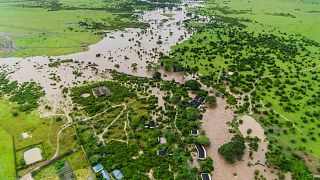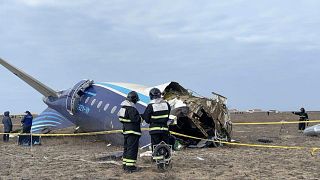Azerbaijan
The world’s largest inland body of water is under threat.
The 1,000-kilometre-long Caspian at some point had close to a million seals.
Today, all its former glory has been erased by pollution and climate change.
Currently, it has only 10 percent of the seals population, one of the reasons why the International Union for Conservation of Nature declared the massive water body an endangered area.
“All these problems resulting from senseless human activity have had an impact on the Aral Sea, and we have seen in a very short time the enormous changes that have occurred: the sea has practically disappeared. The environmental, economic and social consequences of this disaster were considerable,” said Azer Garayev, head of the Azerbaijan Society for the Protection of Animals.
The Caspian Sea is believed to have extensive natural resources, which include an estimated 50 billion barrels of oil and 300,000 billion cubic metres of natural gas.
It is home to unique fauna and flora in the world that suffer from hydrocarbon-related activities as well as from the drop in sea level.
“Due to climate change, there is less precipitation in the Volga basin, more water is used from the reservoirs. As a result, the water supply is constantly decreasing, while evaporation is increasing. This is what causes the sea level to drop,” said Ilnur Safarov, marine scientist.
Fishermen native to Baku, the capital of Azerbaijan, are witnessing the impact. The multi-coloured oil droplets in the water reflects the fishing areas.
“There are many fish here despite the fact that the water is polluted on these shores. There are fish that feed on particles of polluted water, so they tend to congregate in these areas,” said Rashad, fisherman.
Countries around the Caspian sea signed a historic agreement in 2018 on the legal status of the resource-rich Sea years after the dissolution of the Soviet Union.
However, activists say there has been no concrete actions since then.














02:22
Cameroonian marine conservationists trained as scientific divers
00:50
New documentary shines light on plight of pangolins, one of the world's most trafficked mamals
01:50
Sierra Leone: popular chimpanzee sanctuary under threat from encroachment
00:31
The Pride of Africa: Efforts underway to protect Africa's endangered grey crowned crane
Go to video
World Bee Day: bees under threat, but solutions exist, report finds
Go to video
In the DRC, Virunga National Park marks 100 years of conservation and struggle